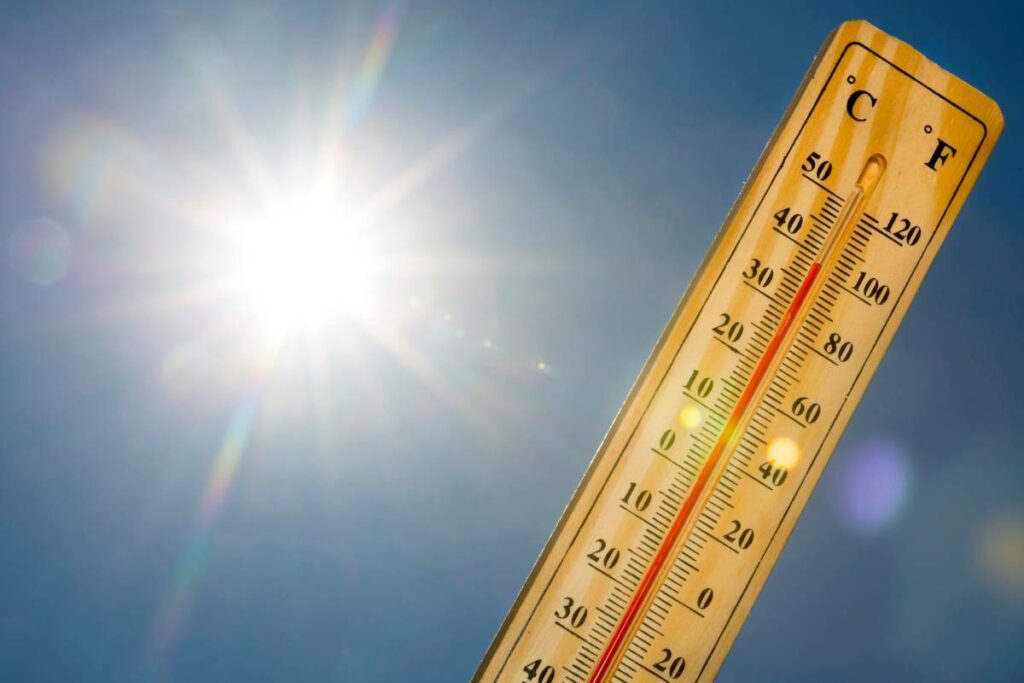Reuters “Sustainable Switch,” technically the product of a news organization, emails about “the long-term consequences of natural disasters as we look at how people in Spain, Mexico and the United States are recovering from extreme weather events as they grapple with mental health constraints, body recovery and rebuilding. Weather-related natural disasters, many exacerbated by climate change, are on the rise, according to the United Nations.” And yes, the United Nations says a lot of strange stuff. But surely as reporters you checked about this fabled increase in natural disasters. Because if not, we’re going to be skeptical about the part where weather is making people crazier too. Except those hallucinating increases in storms and so forth. We’re persuaded on that one.
To some extent, and it’s no excuse, the problem is that everyone these journalactivists talk to is so convinced that the weather is getting worse, and so rudely dismissive of any “deniers” who ask silly Socratic questions like “How do you know?” that they forget to check. Just as the Canadian government is forever thundering on about stuff like:
“Canada’s climate is changing. Higher temperatures, more frequent and extreme weather events, and rising sea levels are just some of the changes affecting many aspects of our lives, including our natural resource sectors and the communities that rely on them.”
Its own carefully maintained data archives say otherwise, including on wildfires. But when you know the deeper, truthier truth you don’t bother checking the boring factual truth, and instead our “Minister of Emergency Management and Community Resilience and Minister responsible for Prairies Economic Development Canada” (no, really, that’s her job title, not Minister of Looking First) says “The growing impacts of climate change mean that these events will continue to be more frequent and severe in the years ahead.” Plus it’s about feelings, nothing more than feeeelings.
In which regard it is sad to read that:
“The sound of rain still triggers panic in Jose Manuel Gonzalez, a year after he spent six hours clinging to a traffic light as floods in the Valencia region of Spain swept away everything in their path, killing more than 220 people including his brother.”
To be honest we feel rather worse for the brother and others who died. Some survivors might feel gratitude at having been delivered. But in any case, as we noted at the time, the reason those floods were so bad is that authorities had diverted a river after devastating floods in 1957 and the engineering failed. Possibly people should panic when they hear “from the government and here to help”. Or “according to the United Nations” since as we also noted at the time, Valencia has been recording floods worth recording, even if you had to use a quill and some vellum, since at least 1321, before there was climate.
Still, let us be fair and investigate this specific UN claim. What did it say, which part of it said it, when and where did it say it and based on what data? Um uh never mind that rubbish. Instead:
“Almost 28% of adults affected by the floods suffered from PTSD, according to a poll of 2,275 people carried out by the regional government’s health department. ‘We have people who don’t want to take a bath, or go to the sea, or be near water. There is a lot of aquaphobia,’ said Julieta Mondo, a psychologist at USME.”
And of course when world ends, women and minorities hardest hit:
“She said more women tend to suffer from the psychological effects of the floods because they are often the main caregivers in the home and struggle to balance looking after children with their own emotions, especially when it rains.”
Still, having somehow survived our own morning shower we ask again: Where’s the data? The piece does repeat the email claim verbatim but modern journalism being what it is there’s no link. And it says:
“Some parts of Europe experienced their wettest year on record in 2024, with storms and flooding affecting an estimated 413,000 people, according to the EU’s Copernicus Climate Change Service. That resulted in the loss of at least 335 lives and caused at least 18 billion euros ($21 billion) of damage.”
On record meaning what exactly? Going back how far? What kind of data have we got from before, say, 1957? Again, no link. But we have Google on our computers so we found this item, on precipitation, from their review of 2024:
“In 2024, there was a clear east-west contrast in conditions across Europe. For western Europe, it was one of the ten wettest years in the analysed period since 1950, with the most above-average precipitation observed in France, northern Italy, Belgium, the Netherlands, Luxembourg, Denmark and northern Fennoscandia. Across eastern and southeastern Europe, conditions were drier than average. When considering a period from 1979 onwards, parts of Ukraine and Russia saw their driest year.”
Um no wait that can’t be it, can it? Because one of the ten wettest in the last 75 just suggests that some years are rainier than others, and given that we have anecdotal reports and even on some rivers watermarks suggesting raging floods and parching droughts over many centuries, it’s hard to get traumatized by the fact that it rained fairly hard in one region as it often does.
Oh wait. What about this? That item says:
“September saw its wettest conditions in central Europe in the period since 1979”.
Is that your record? Are those “some parts”? (If so, we suggest you get Google on your computer and see if Spain is in central Europe since it wasn’t back when we were in school.) Also is “since 1979” the same as “on record”? Are you even trying to do journalism any more?



“Some parts of Europe experienced their wettest year on record in 2024, with storms and flooding affecting an estimated 413,000 people”.
Um
Europe population is ~750 million so the wettest floodiest year ever affected 0.06% of the population?
We can’t adapt to that?